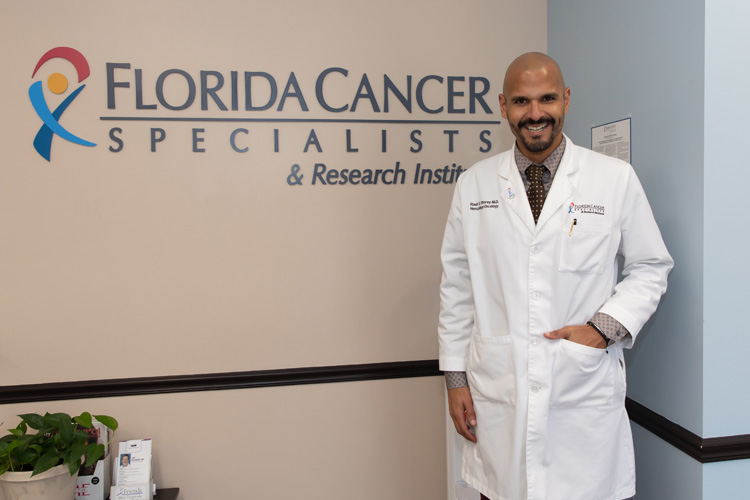
Most of what’s written about prostate cancer these days is about the early detection and treatment of the disease.
That’s largely because early detection and early treatment are the areas where there have been significant changes and improvements in recent years.
But not a lot has changed since the mid-1940s in the treatment of advanced prostate cancer that has metastasized.
Doctors can treat – but not cure – advanced prostate cancer, and the treatments can be tough.
That’s pretty scary given that the M.D. Anderson Cancer Center says “prostate cancer is the most common cancer among men in the United States [with] more than 192,000 cases are diagnosed each year.” The American Cancer Society estimates some 2,290 Floridians will die of the disease this year alone.
That last figure, however, may not portray the full extent of the problem. No one really knows how many cases of prostate cancer – statewide or nationally – go undiagnosed until the cancer has spread to other parts of the body.
If and when that happens, a death certificate is likely to list “cancer” rather than “prostate cancer” as the cause of death.
If advanced prostate cancer is diagnosed, treatment can be draconian.
No one is more aware of that than Dr. Raul Storey, an oncology and hematology expert with Florida Cancer Specialists.
“It has been since the 1940s,” Storey explains, “that the correlation between testosterone and the growth of prostate cancer” was first recognized.
Basically, he says, the male hormone testosterone actually feeds or at least triggers cancerous cells to grow.
“If we are able to suppress or eliminate the production of testosterone in patients, we realized [the incidents of] prostate cancer declined or improved.
That’s all well and good but the easiest way to eliminate the production of testosterone involves a word few men want to hear: castration.
So what happens when prostate cancer metastasizes that would make castration sound like a viable option?
Well, for starters, in most cases, the cancer spreads from the prostate gland to the lymph nodes and then into the bones. The abdominal pain caused by those lymph nodes being attacked by cancer can be quite severe. And, if the cancer spreads to your bones, it will cause bone pain and potentially catastrophic bone breaks, too.
For men with advanced prostate cancer that all makes for something of a Hobson’s choice.
Castration – either surgical or through medications – may well put an end to bone and lymph node pain by shutting off the production of testosterone, but as Storey says, “patients can develop all the similar side effects as someone without any hormone activity [including] night sweats, hot flashes, mood swings, fatigue, tiredness and gynecomastia or the increase in the volume of the breast tissue in men,” along with osteoporosis and overall decreases in bone mass.
There is, however, at least a little good news when it comes to treating advanced prostate cancer.
Certain drugs, including Eligard, Lupron and Trelstar, suppress the production of testosterone by the testicles while two newly FDA approved medications, Xtandi and Zytiga, are able to block testosterone production in not only the testicles but in other areas of the body such as the adrenal glands and the tumor itself.
And there is even better news about diagnosis.
Modern diagnostic procedures such as transperineal biopsies – performed through the skin between the scrotum and the rectum rather than through the rectum itself – now help minimize the risk of infection and sepsis complications in early detection procedures.
And there is vastly improved imaging equipment and other operation room technology that allows tissue samples to be collected from multiple areas of the prostate gland so cancerous cells can’t “hide” nearly as easily as they used to.
If you do have advanced prostate cancer, your best bet is to consult an oncologist like Storey for a more comprehensive review of your options which might also include chemotherapy or radiation treatments.
If you don’t have prostate cancer, the best move is to take advantage of today’s vastly improved screening and diagnostic advances and not wait for symptoms to appear.
Dr. Raul Storey is with Florida Cancer Specialists and Research Institute in Vero Beach. His office in Vero is at 3730 7th Terrace, Suite 101, where the phone number is 772-581-0528. In Sebastian his office is at 13060 U.S. 1. The phone number there is 772-589-5814.



